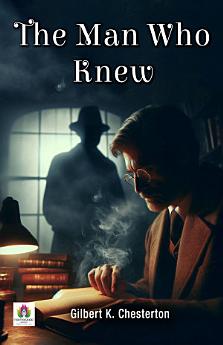The Man Who Knew: Demanding Ebook Book
About this ebook
In this compelling narrative, Chesterton presents a fascinating character who seems to know everything yet finds himself in increasingly perplexing situations. As the man delves deeper into his knowledge, he begins to question the very nature of what he knows, revealing the dangers of possessing too much understanding without the wisdom to navigate it. The story examines the conflict between intellectual pursuit and the responsibility that comes with it, shedding light on the often unforeseen consequences of gaining knowledge.
""The Man Who Knew"" is not just a tale of intellectual discovery but a subtle commentary on the human condition. Chesterton’s sharp observations on society, morality, and the limitations of knowledge make this book a rich and layered read. The protagonist’s journey through his own mind and the world around him serves as a reflection on the complexities of life, offering readers a chance to examine their own perceptions of truth and understanding.
With his trademark humor and deep philosophical insight, Chesterton creates a story that is both intellectually stimulating and entertaining. The narrative's thought-provoking themes of knowledge, power, and responsibility are delivered in a way that is engaging and accessible, making ""The Man Who Knew"" an essential read for those interested in philosophy, psychology, and the human quest for understanding.
This book appeals to readers who enjoy a blend of intellectual exploration and thrilling narrative. Chesterton’s ability to combine philosophy with captivating storytelling ensures that ""The Man Who Knew"" remains a timeless classic. Whether you're a fan of Chesterton’s other works or new to his writing, this novel is sure to captivate and provoke thought long after the final page.








